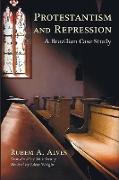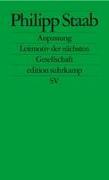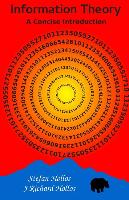Protestantism and Repression
BücherAngebote / Angebote:
Over the last twenty years, incredible changes have taken place in the Presbyterian Church of Brazil. In 1959, on the occasion of its centennial celebrations, this church was acclaimed as the outstanding success story of Protestantism in Latin America, it was hailed for its vitality and for the role it seemed destined to play in the life of that nation. Today, after fifteen years of domination by a small group of reactionary leaders, it has been decimated. The word 'Presbyterian' now calls to mind the destructiveness of religious fanaticism and repression. In 'Protestantism and Repression' Rubem Alves wrestles with the questions, Why did all this happen? What is there in the structure and logic of what he calls 'Right-Doctrine Protestantism, ' that leads to repression under certain historical conditions? His analysis is thorough, his insights, profound, his conclusions, astonishing. I urge you to read this book: whether you fear that our religious institutions are moving toward repression, or are convinced that it can't happen here. --Richard Shaull, from the Foreword An outstanding and internationally recognized Third World theologian, Rubem Alves has in 'Protestantism and Repression' moved from the devastating analysis of the consumer society articulated in 'A Theology of Human Hope' and 'Tomorrow's Child' to a partly autobiographical critique of the Presbyterian Church of Brazil, a church in which his roots are deeply imbedded. Alves rigorously documents the transformation of Presbyterianism in Brazil from a liberating force to a bulwark of oppression and repression, and he convincingly establishes as the cause of this deterioration what he calls 'the spirit of the Right-Doctrine Protestantism, ' a socially conditioned neofundamentalism that arrogates to itself absolute knowledge and absolute power. As Richard Shaull stresses in an excellent and most informative Foreword, what has happened in Brazil could happen to North American Protestantism. But the lesson is not only for Protestants. The basic issues as defined by Alves are equally pertinent for Roman Catholics both in Latin America and in the Unites States. --Gary MacEoin Rubem Alves was educated at the Campinas Presbyterian Seminary in Brazil, Union Theological Seminary, New York, and Princeton Theological Seminary. A Presbyterian minister and professor at the University of Campinas in Brazil, Alves is the author of What is Religion?
Folgt in ca. 2-3 Arbeitstagen




